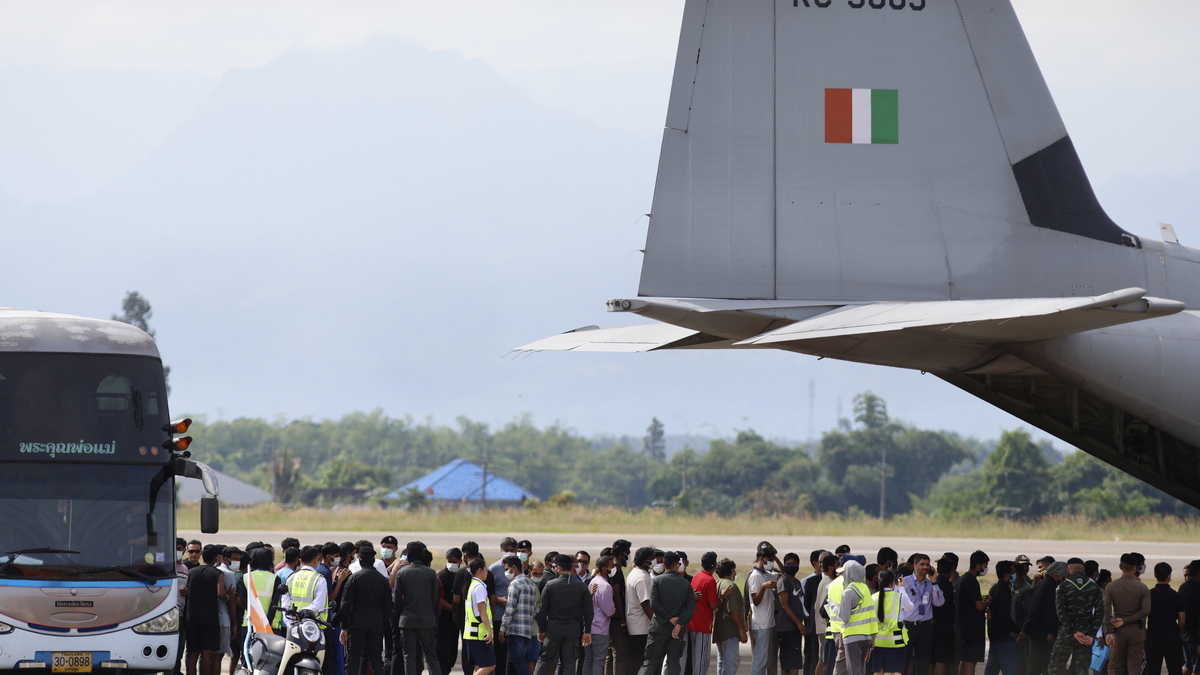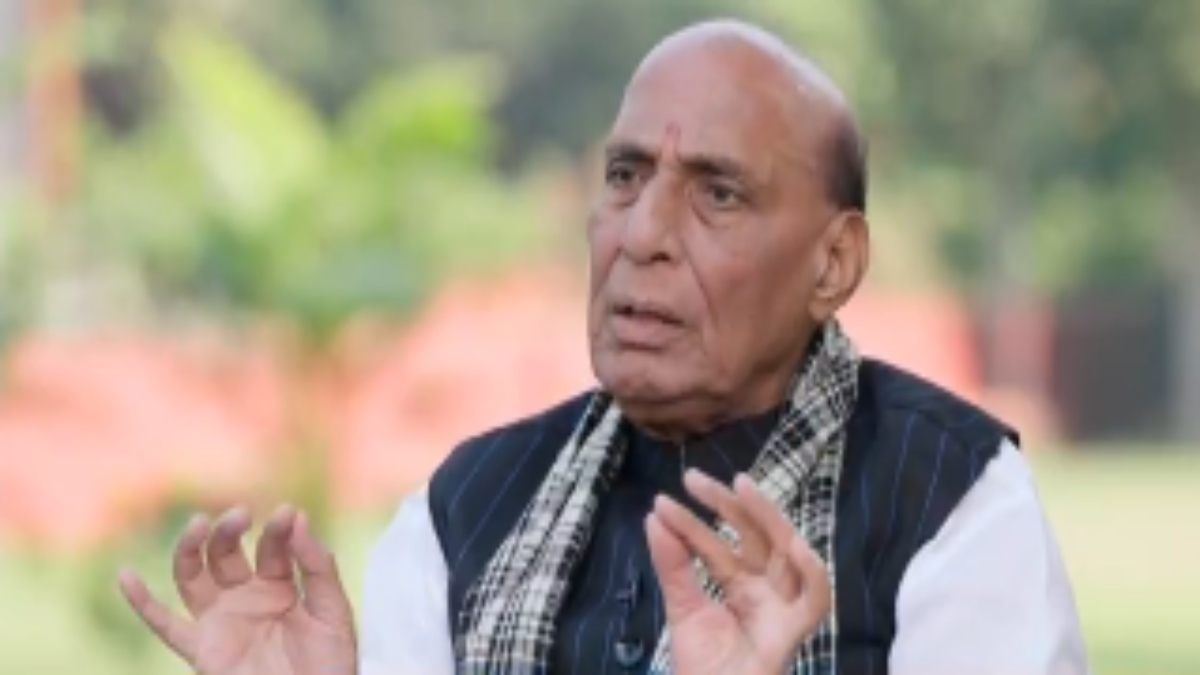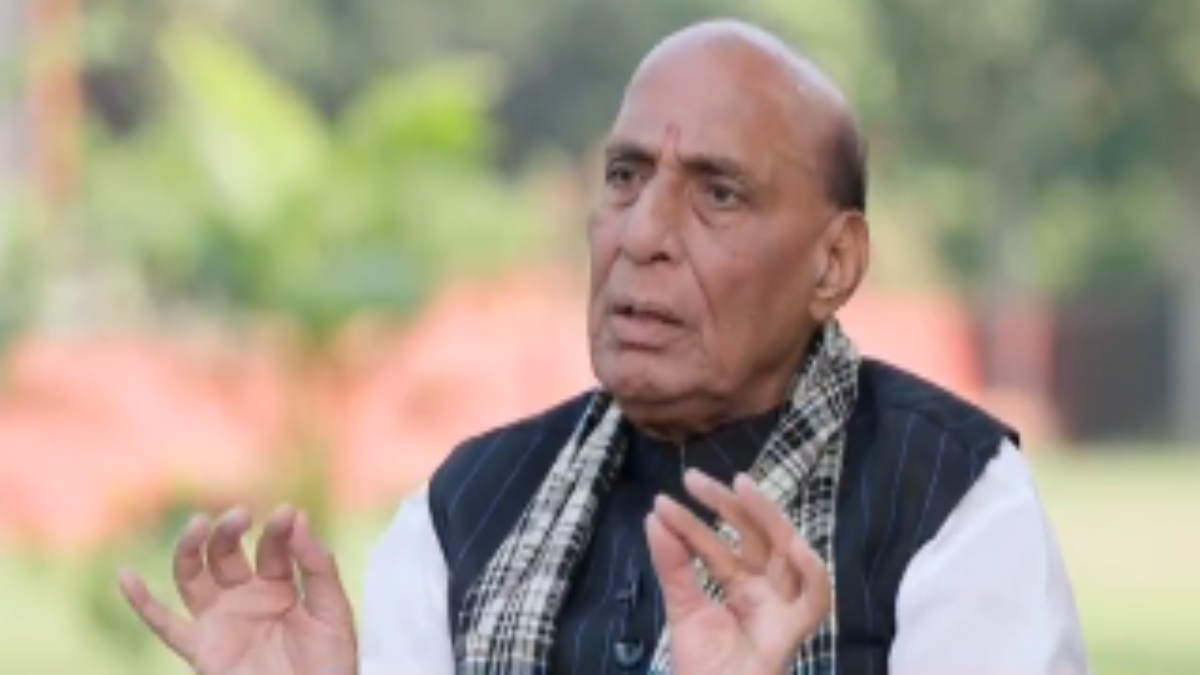Scam centres in Southeast Asia just keep growing — despite authorities’ efforts to tamp down on them.
People have been scammed out of billions of dollars, and hundreds of thousands of people, kept in massive compounds, are forced to keep perpetuating this industry.
How it begins
It usually begins with a ‘hello’. The number is unknown, but the tone is friendly. The scammer usually broaches the subject by asking if you’re free to work on weekends or part-time.
On the other side of the world is someone working 12 to 16 hours a day, sending dozens of messages. The goal remains the same — to bilk an unsuspecting victim out of their money.
Myanmar clampdown
Last month, the Myanmar military cracked down on one of the most well-known scam hubs — KK Park near the Thai border.
While the military claimed it had been shut down, civil society groups said parts of it continue to operate. Around 1,500 workers — including Indians, Chinese, Filipinos, Vietnamese, Ethiopians and Kenyans — fled across the border as troops smashed several buildings within the complex.
Thailand is now coordinating with multiple governments to bring their citizens home. On Thursday, one of the largest groups of workers was flown back aboard Indian Air Force transport planes, with more expected to return next week.
But this was barely a drop in the ocean.
Dozens of similar compounds sit along the Thai-Myanmar border — and hundreds more are scattered across Southeast Asia. Scam centres are often found in remote areas, sprawling compounds with dormitories, shops and entertainment venues for staff.
Developers typically build a large property and lease out space inside to different companies.
Many of these centres operate under the protection of local elites. Smaller operations also exist, usually taking up a floor in an office building or a rented house in a city.
Impact Shorts
More ShortsThe scam industry evolved from the region’s casino boom — both physical and online — that spread rapidly across Southeast Asia. The United Nations Office on Drugs and Crime counted more than 340 licensed and unlicensed casinos in 2021 alone.
These casinos and their attached junket tours attracted high-rollers from China, where gambling is banned, and were often run by Chinese criminal networks.
During the pandemic, when travel restrictions cut off their clientele, some online casinos shifted models — turning to large-scale digital fraud to target victims around the world.
The UN estimates around 120,000 people in Myanmar may be trapped in scam compounds, with another 100,000 in Cambodia, according to a 2023 report by the Office of the United Nations High Commissioner for Human Rights.
The numbers are rough estimates, but the centres rely on both trafficked and voluntary labour, people lured by promises of good salaries and easy office work.
Initially, most workers came from China and other Chinese-speaking regions, but now the UN Drugs and Crime Office says labourers come from 56 countries — stretching from Indonesia to Liberia.
The reality is far from what they were promised. Workers say their passports are confiscated to stop them leaving the compounds. Only senior managers and trusted lieutenants are allowed to move freely. Those who fail to meet targets face beatings or other physical punishment.
A problem across the world
Scammers don’t discriminate — they target victims globally, using translation tools powered by artificial intelligence.
In the Philippines, authorities raided a complex in March 2024 where workers had been targeting Chinese nationals in an investment scam. Following a prepared script, scammers posed as senior employees of the state-owned China National Petroleum Corporation, convincing victims to invest in crude oil futures.
Last month, about 50 South Koreans were repatriated from Cambodia after being arrested over several months for allegedly working in online scam operations.
Also recently, US prosecutors unsealed an indictment against Chen Zhi, a Chinese-Cambodian businessman accused of running a vast criminal network that defrauded hundreds of Americans. Prosecutors said his group scammed 250 victims out of millions of dollars with one losing $400,000 (Rs 3.55 crore) in cryptocurrency alone.
In 2024, Americans lost at least $10 billion (Rs 88,660 crore) to Southeast Asia-based scams, according to the US Treasury Department.
How it works
Scams take many forms — from fake cryptocurrency investments to online task scams where users are told to top up to receive their next task, sometimes even receiving small real payments early on to build trust.
Scammers often create a sense of urgency, telling victims they’ll miss out on profits if they don’t act quickly.
Despite frequent raids and rescue operations, activists say the real organisers remain untouched. New compounds continue to appear across the region — and beyond.
‘Can scam anytime’
A United Nations report in April said scammers have swindled victims out of billions of dollars through fake romances, bogus investment schemes and illegal gambling networks — stretching as far as Africa and Latin America.
“If we only rescue the victims, and don’t arrest anybody, especially the Chinese mafia and those transnational syndicates, then there will be no point,” said Jay Kritiya, coordinator of the Civil Society Network for Victim Assistance in Human Trafficking.
“They can get more victims … they can scam anytime,” said Kritiya, who has helped rescue forced labourers from scam compounds.
With inputs from agencies


)

)
)
)
)
)
)
)
)



